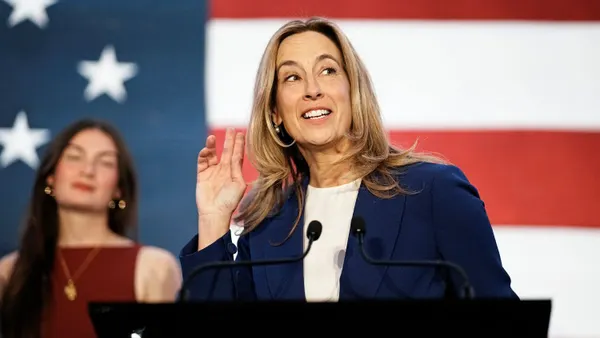Dive Brief:
- More than 30 investor and human rights groups have signed a joint letter urging the European Commission and members of European Parliament to preserve the “review clause” of the Corporate Sustainability Due Diligence Directive in the final text.
- The Sept. 1 letter — spearheaded by responsible investment nonprofit ShareAction and backed by the World Wide Fund for Nature, Reclaim Finance, Oxfam and others — said the clause is “modest in scope but highly significant in purpose.” The signatories added that committing to the review clause will “allow EU policymakers to better understand how financing and investment decisions are impacting fossil fuel expansion, deforestation and human rights abuses in supply chains.”
- The “review clause” of the CSDDD requires the Commission to submit a report no later than 26 July 2026 on “the necessity of laying down additional sustainability due diligence requirements tailored to regulated financial undertakings with respect to the provision of financial services and investment activities, and the options for such due diligence requirements as well as their impacts.” But an Omnibus package of proposals, adopted in February by the European Commission, proposed removing this clause.
Dive Insight:
The Omnibus proposal, which has drawn criticism for reducing the scope of the CSDDD, is now with the European Parliament’s Committee for Legal Affairs, which plans to vote on amendments to the law on Oct. 13, according to a preliminary timeline. Afterwards, the legislation will face a vote in the European Parliament, likely later in the month.
When proposed by the Commission in February 2022, the CSDDD included companies’ downstream activities, meaning that financial institutions would have to consider the activities of clients receiving their investments and loans, according to the 2022 version of proposed law. But by the time CSDDD made it through negotiations with the Parliament and Council, in December 2023, financial services were excluded from the directive’s scope. A “review clause” was left in place for “a possible future inclusion of the financial downstream sector based on a sufficient impact assessment,” per the Council’s press release.
But if the Omnibus proposal is adopted, the clause would be removed, “as it does not leave any time to take into account the experience with the newly established, general due diligence framework,” per the proposal text.
The review clause “offered a second chance” for eventually introducing due diligence for financial institutions, sustainable finance advocacy group Eiris Foundation, one of the letter’s signatories, said in a Sept. 1 LinkedIn post. A 2024 Eiris report traced how lobbying by financial institutions and trade groups managed to pull financial services out of the scope of CSDDD between 2022 and 2023.
But by removing the clause altogether, the EU would show that it is “willing to let the financial sector off the hook,” according to the joint letter published Monday. Without the clause, the EU sends the signal “that high-risk investments can continue to fuel human rights abuses and environmental destruction without consequences; and that systemic risks for investors themselves may grow unchecked,” per the letter.
Investors and human rights groups are not the only ones to protest the disappearance of the review clause. In May, the European Central Bank published a statement asking for the review clause to be retained. It agreed that the July 2026 deadline for the assessment was too soon, but affirmed that “regulated financial undertakings should not be treated differently from undertakings in other sectors, including in the context of the CSDDD.”
“For private finance to effectively manage risks and support the green transition of the real economy, it is crucial that regulatory and legislative requirements are consistent across sectors,” the ECB said in the statement. “In particular, the CSDDD’s due diligence requirements can help to ensure that financial institutions systematically integrate sustainability matters into their decision-making and risk management practices.”










